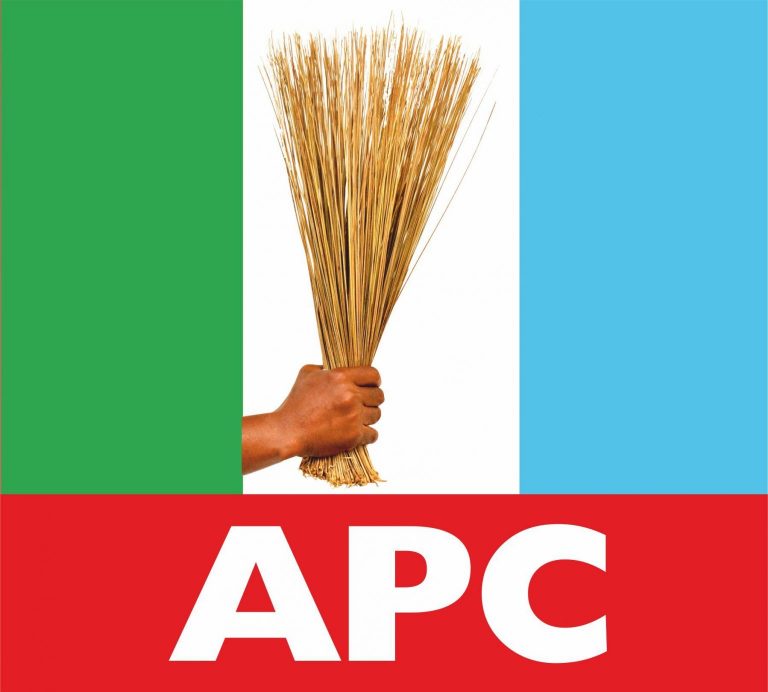Since her inception into mainstream Nigerian politics, the All Progressives Congress (APC) has shown herself to be the worst political parties in Nigeria with members who are known for lackadaisical leadership, callousness, sycophancy, nepotism, organised embezzlement and pilfering of public funds meant for other uses. A major straw that broke the People’s Democratic Party’s 16-year rule in Nigeria was pervasive corruption. Nigerians voiced their frustrations by voting in the All Progressive Congress (APC) presidential candidate, Muhammadu Buhari, during the 2015 general election and this was one of the worst mistakes that Nigerians made and till today, they are still regretting it.
The country has been witnessing the most tumultuous period in her polity like never before in recent times and this is due to the gross plundering of the economic resources of the country by the marauding political leaders who belong to the APC. Sadly, the situation is yet to be totally brought to rest because these APC hoodlums have failed the masses woefully and taken advantage of the very people they ought to be representing. And because of this exploitation by the APC, there is an absolute deteriorated system in Nigeria where the interest of the masses is no longer represented instead thoroughly abused.
When their political scorecard is checked, it would only be fair to state unequivocally that the maladministration has performed worse than could have been imagined. None of the problems confronting Nigeria in 2015 or in the years leading up to this was unprecedented—not even the fall in oil prices or the high spate of insecurity ruining Nigeria. On this basis alone, the reasonable expectation for any Nigerian government-in-waiting is that it would at least have had a contingency plan against the risk of an oil crisis—even if this meant a plan that would be subject to revisions at a later stage (i.e. after the election when the government would have had a better grasp of the full impact of fall in oil prices on state revenues). However, the facts speak for themselves: it took APC’s Buhari 8 months to appoint his cabinet, and an additional 14 months for his government to finally unveil its medium-term economic strategy, the Economic Recovery and Growth Plan (ERGP). Not to mention the lack of improvement in the now-customary practice of delayed budget presentations (and, therefore, approvals). By all means, the APC’s maladministration can be described as taking a bad situation and making it worse.
Even if one chooses to judge the maladministration against the yardstick it had set for itself, by comparing its performance to date to its key electoral promises, it is hard to get away from the fact that the maladministration is performing below expectations. In its election manifesto, the APC had made a number of promises, all of which could be classified under three key themes: improving Nigeria’s security environment; tackling corruption, and economic reform (which includes tackling unemployment). If one were to take a stern view, then the conclusion would be that the government has failed very woefully on all three fronts, but such a view would be too simplistic.
Nigeria’s most pressing security challenge when the APC came into power was Boko Haram. Today, the threat has multiplied into other factions such as the ISWAP, the bandits and the Fulani Herdsmen. And to make matters worse, each faction is in a hot competition to see who can shed more innocent blood than the other. Many lives have been lost as they go from place to place ravaging and sacking towns while security forces stand helpless because the incompetent ruling APC cannot make a standard decision to curtail the excesses of these hoodlums and restore security to these affected areas.
There are also long-held grievances in the oil-producing Niger Delta which have once again resurfaced in the form of resurgent militancy under the maladministration of the APC. The causes of this renewed threat will likely remain a subject of debate but it won’t be a wrong guess if the APC is fingered for being the cause of this.
Even the maladministration ’s fight against corruption has been shown to be one-sided as the arrests and interrogations have been directed at members of the opposition party and others who are deemed as threats to the political party. The EFCC and DSS are being used as tools to encourage corruption and instil fear into would-be antagonists and those who dare to contest the maladministration and thievery of the party when it comes to their misuse of internally generated funds and loans. The public debt of Nigeria has currently risen to $89.303 billion as of May 2021 and it might still surpass that with far higher figures in the near future as the APC maladministration is still planning on collecting more loans to satisfy the greedy appetites within their circle of organised crime and not for the interest of the Nigerian masses.
Corruption, insecurity and half-baked leadership are what make up the All Progressives Congress and it is sad that Nigerians would have to bear the brunt of their irresponsibility and clueless leadership for the next two years. But it would be very worthwhile if Nigerians would be able to rise up and take a stand against the party come 2023. The influx of political big-wigs into the party should not be an intimidating factor for Nigerians no matter the tribe or ethinic group. Nigeria’s growth and redemption can only be realised if the ‘leech-party’ called APC is ousted from power.
AFRICA DAILY NEWS, NEW YORK










